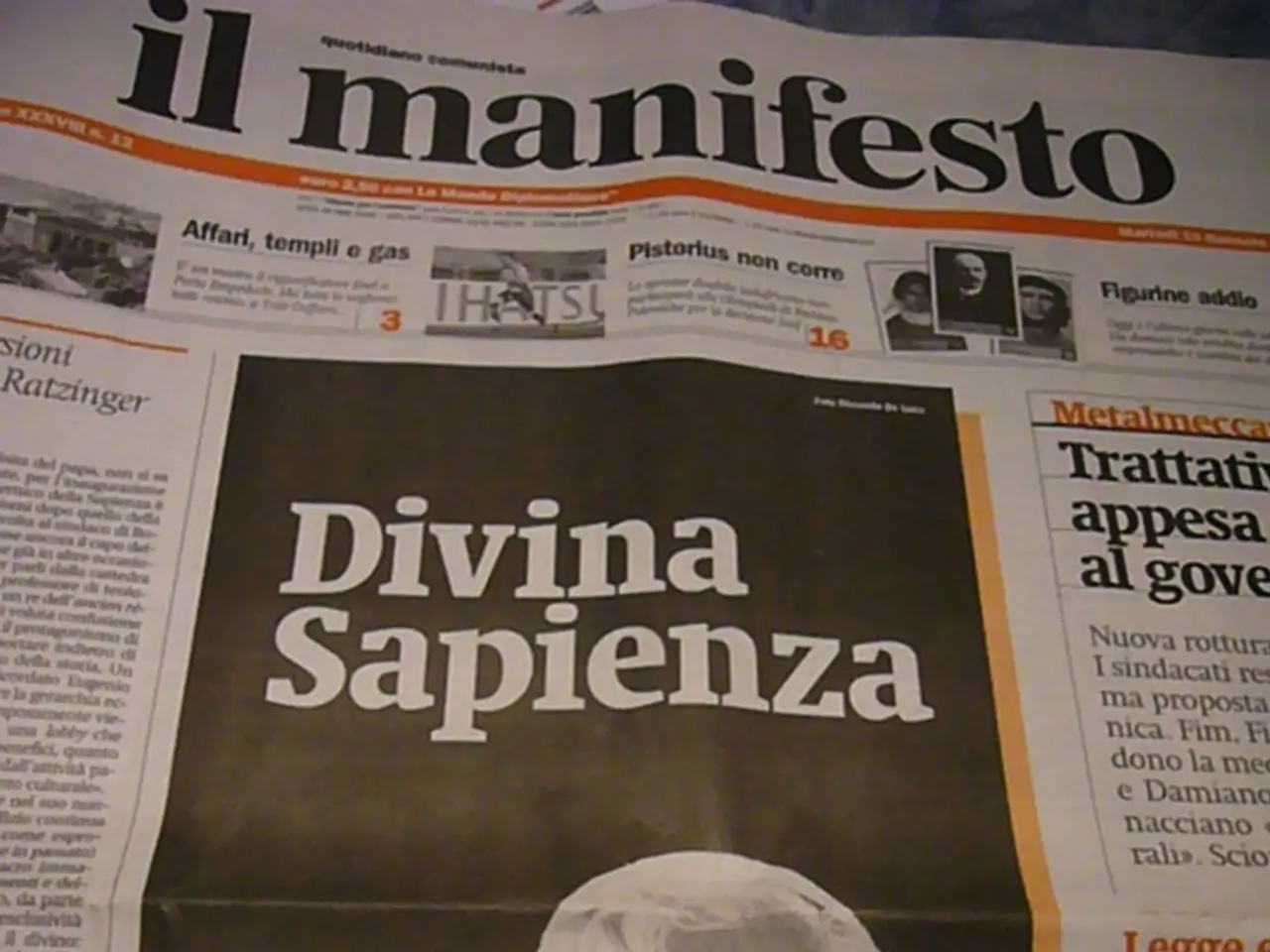Google faced a lawsuit from the proprietors of Rolling Stone and Billboard, allegedly due to an AI-related issue.
In a recent turn of events, American publisher Penske Media has filed a lawsuit against Google, alleging the tech giant is using journalistic materials without consent, leading to decreased traffic to their websites. This decrease in traffic results in a reduction of both advertising and subscription revenues for Penske Media, as reported by the company.
Penske Media, known for publishing titles like "Rolling Stone," "Billboard," and "Variety," is the major publisher suing Google over the use of AI summaries of news articles. The lawsuit states that Google would have to pay publishers for the right to use texts, including for training AI models.
Meanwhile, Google has a dominant market position, holding nearly 90% of the U.S. search market, according to a federal court decision. Google only includes websites in search results if it can use their news articles in its AI summaries.
However, Google has denied these allegations, with a spokesperson stating that they intend to "defend against these unfounded allegations."
In a separate development, Google is conducting an experiment with select YouTube Shorts, using AI to process video quality. The AI processing makes the videos appear to have been generated by AI, even though they were actually recorded by people. It smooths out wrinkles on shirts, changes the shape of ears, makes skin smoother, and makes the image sharper and clearer.
This experiment could potentially impact the authenticity and credibility of videos on the platform, as creators on YouTube have expressed concern that it could undermine audience trust. The BBC reported these concerns, stating that creators are worried about the implications of AI-processed videos.
It is unclear if this experiment will be expanded to other YouTube video formats. Google has confirmed the experiment, with YouTube head of editorial and author relations, Rene Ritchie, confirming it on August 20 via X.
Interestingly, this is the first reported instance of Google using AI to process videos on YouTube without users' knowledge. Around 20% of Google search queries that lead to Penske Media's media sites now show AI summaries, a percentage that Penske Media expects to increase.
Penske Media's affiliate marketing revenue has fallen by more than a third from its peak at the end of 2024, further highlighting the potential impact of Google's practices on publishers. The lawsuit between Penske Media and Google is ongoing, and the outcome could have significant implications for the future of AI in media and journalism.
Read also:
- Tesla's Nevada workforce has escalated to a daily output of 1,000 Powerwall units.
- AI-Enhanced Battery-Swapping Station in Southeast Asia Officially Opens Its Doors
- Honda unveils blueprint for design, advanced driver assistance systems, electric vehicles, fuel efficiency, and technology development
- Rising Tesla Sales in China, Model Y Led the Pack in October Sales Figures








